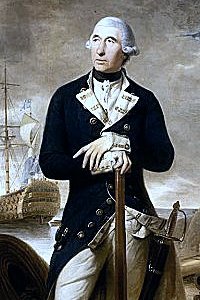Introduction
Born: October 1718, Westminster, England.
Died: August 29, 1782, Spithead (near Portsmouth), England. He and hundreds of sailors drowned when their ship, the Royal George, sank while undergoing repairs.
Buried: Westminster Abbey, London, England.
Pseudonym: Philotheorus.
